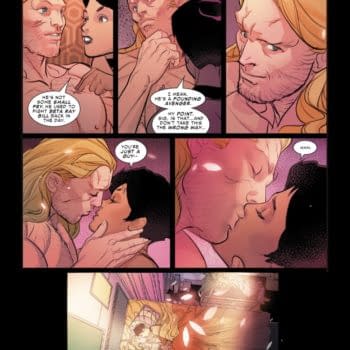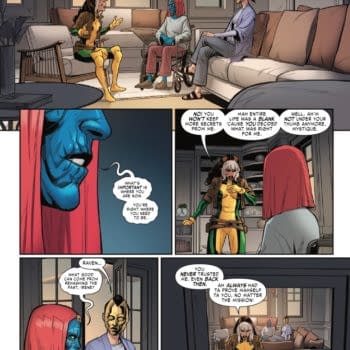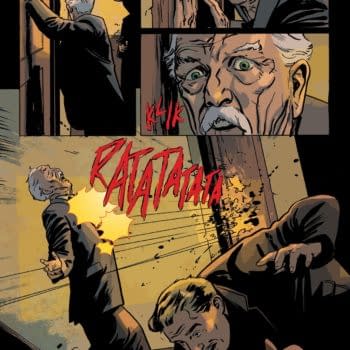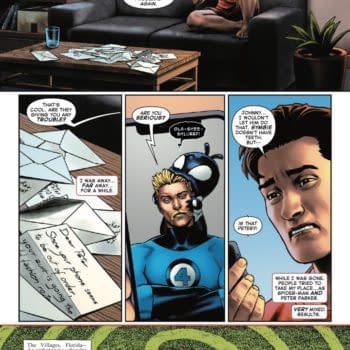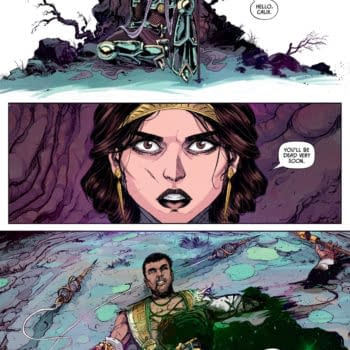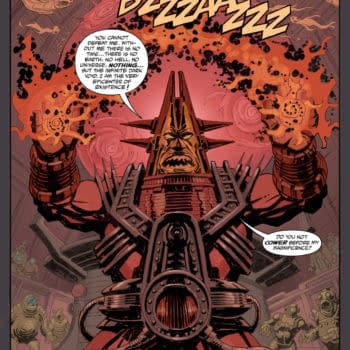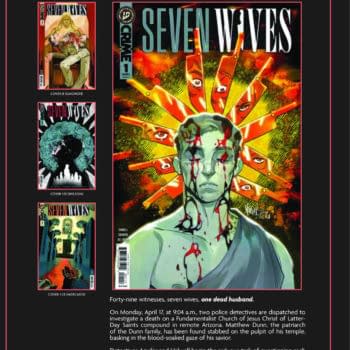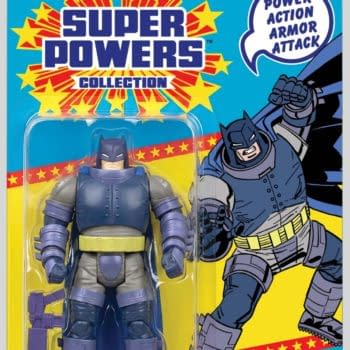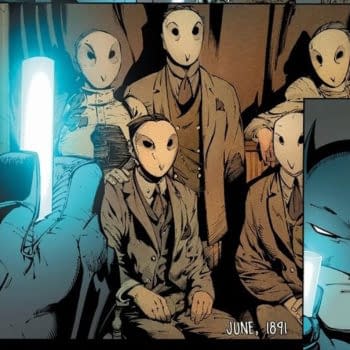Posted in: Comics | Tagged: greg anderson elysee, is'nana the were-spider, kickstarter, the gentleman, the gentleman: darkness of the void
The Gentleman: Darkness of the Void – Pandering Horror to the Unrepresented
Greg Anderson Elysee, Glyph Award-winning creator of Is'nana the Were-Spider and writer of The Gentleman: Darkness of the Void (now on Kickstarter), writes for Bleeding Cool:
A common trait in the horror genre is challenging societal norms. Topics normally too taboo or controversial for other genres are brought to light in horror, either adding to the horrific fear being displayed or flipping the switch and portraying what would traditionally be taboo or used to elicit discomfort in a different light.
Examples include RKO Pictures' Cat People (1942), which pushed boundaries by showcasing a woman's inability to be intimate with her husband and centering sexual repression, leading to an eruption; Elena, the main character, turning into a panther to stalk and kill. Another example, Freaks (1932), practically destroyed director Tod Browning's career, who directed Dracula starring Bela Lugosi just the year prior. Carnival "freaks" and people born of disabilities and defects were portrayed as sympathetic heroes and oppressed, while the villains were "normal" human beings who victimized the deformed performers. Such an idea disgusted and pissed off audiences, and many of the film stock were destroyed.
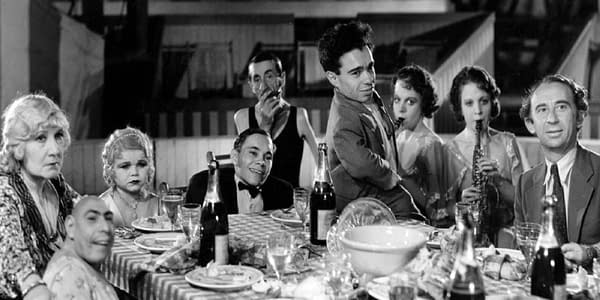
While there were mainstream films like Blacula (1972), Dawn of the Dead (1978), and one of my absolute favorites Candyman (1992) that featured Black leading men and casts, it's still not common to see a Black man or woman headline a horror film. Get Out (2017) by Jordan Peele proved to be a box office hit, seemingly opening the doors for more high-quality mainstream horror films with Black leads.
One of my favorite shows recently was Superstition, created by Joel Anderson Thompson and Mario Van Peebles. A supernatural show on Syfy, it depicts a Black family who protect a town from demons. In the '30s and '40s, producer Val Lewton was seen as progressive for casting Black actors like Theresa Harris in a few non-stereotypical supporting roles or cameos. But for the most part, Blackness wasn't depicted unless it was being portrayed as a bastardized version of Vodou, a practice that continues today with shows like American Horror Story: Coven, using Black spirituality as the source of fear and horror.
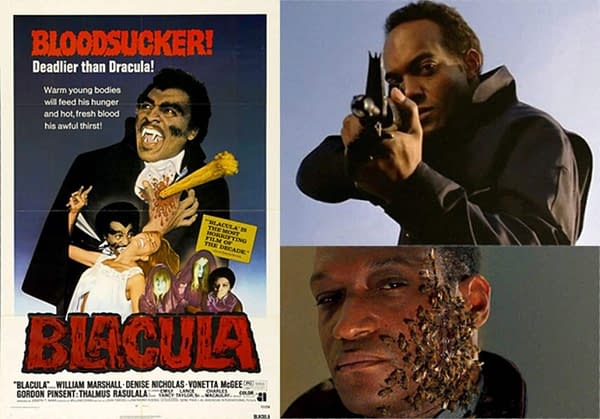
There are still aspects of society that still aren't accepted as heroic leads in genre stories. With the next project I'm writing, The Gentleman, I hope to challenge that.
The Gentleman: Darkness of the Void is a horror noir story about a private eye, Oliver Solomon, who is cursed with a heart that serves as a key to an ancient evil called The Void. Think Lovecraftian but without his racism and bigotry. This curse grants Oliver special supernatural abilities. Unfortunately, the more he taps into this ability, the more the curse spreads from his heart to the rest of his body, weakening him as a vessel, bringing the Void closer to our reality. One night, his ex-boyfriend, Ralph, comes back into his life and introduces him to the femme fatale of the story, Espere, a mysterious and alluring woman seeking help… but may also holds the key to his heart…
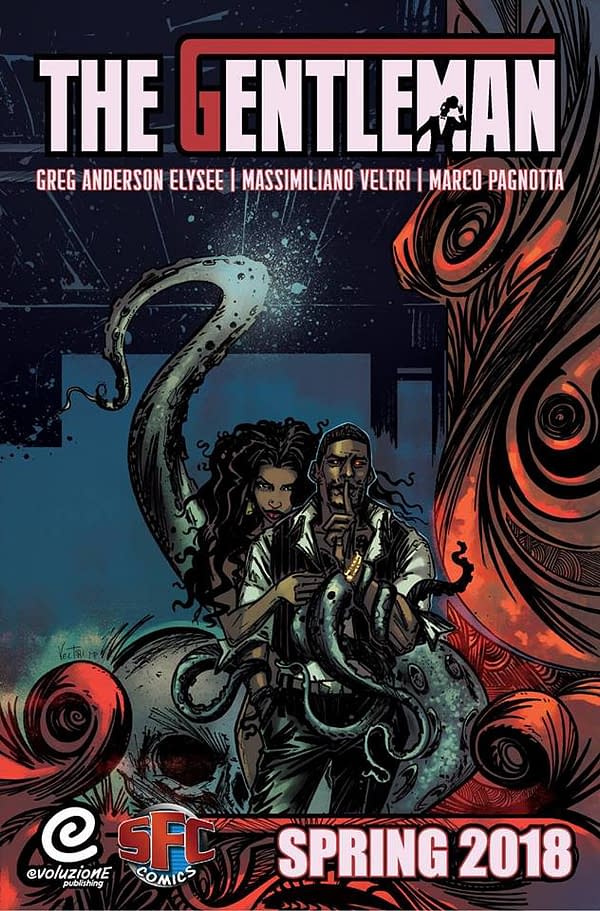
Did something in the last paragraph give you some slight pause?
Like my self-published work, Is'nana the Were-Spider, I hope to showcase a Black protagonist and cast in a fantasy and horror setting that I was obsessed with growing up and wanting to see more of. While the lead character, Oliver, being Black and leading his own horror book clearly isn't something new, something that I felt that has been severely lacking in representation is the depiction of queer Black people as leads. This is where I had hope to challenge myself as a writer and the audience coming into this series.
Representation of diversity seems to be a hot, smoldering topic. You would think that a medium whose stories continually preach acceptance and inclusion would make such themes of diversity a common thing, but those same fans find fault in anything not being the "norm" or the "default": straight, white, or male (and of course all three together). Many of those fans will scream how companies are "pandering" to a marginalized audience, and I find myself confused thinking, "But everything before was pandering to you to begin with."
I got tired of wanting to see a queer Black man depicted as the hero, and not just a man struggling with his feelings and accepting himself. I wanted to see him as a hero like Constantine or Jack Harkness from Dr. Who and Torchwood: not giving a damn about what people felt, messing with whomever he fancied, man or woman, and saving the day. The one bisexual Black character I can even think about is Prodigy, who comes and goes and has no real stature of importance in the long form when it comes to the Marvel universe. After realizing I wasn't going to get that, I decided, "Fine, I'll do it myself." It was a funny coincidence when Marcel Dupree, the publisher and editor of SFC Comics/Evoluzione Publishing, asked me to not only write and develop a mini-series for his character but also asked if I'd be comfortable with writing Oliver as bi or pansexual. I laughed and said, "I'm way ahead of you," having already plotted it.
This is something that I have yet to see and am proud to be developing. It is also something that I've noticed, when announced by Afropunk, caused a lot of excitement for Black audiences looking for a story where they can be treated as normal and the hero. The ones excited for this book mostly seem to give a sense of, "Finally!", which confirmed to me the fact that I was writing to that specific audience as well as the open minded. Another uncommon topic I depict in this mini-series is that Oliver also practiced polyamory in the recent past with his wife and their boyfriend. While many people will find it taboo, I see the need to depict it as it is a truth that people live, and should be showcased with as much right as any other loving practice.
Representation such as having a Black bisexual man as a hero may make some audience members uncomfortable. Aside from entitled straight white males threatened by the appearance of characters other than them sharing the spotlight, there is a sect of Black people who claim to be "Pro-Black" or "woke" who preach intolerance for their own people being anything but straight, as a form of being unnatural to the "African cause" or an attack to Black representation. This is my declaration that this book is not for them, and I don't feel any negative feelings about their lack of support. This is for anyone, especially marginalized Blacks, who felt different growing up or may still feel like it, being seen as "abnormal" and struggling with their truths while wanting to see themselves represented as a hero in a fantasy horror story. Anyone else who is down enough are welcome to join in for the ride. Welcome and let's take a journey to the weird life of Oliver Solomon, aka The Gentleman!
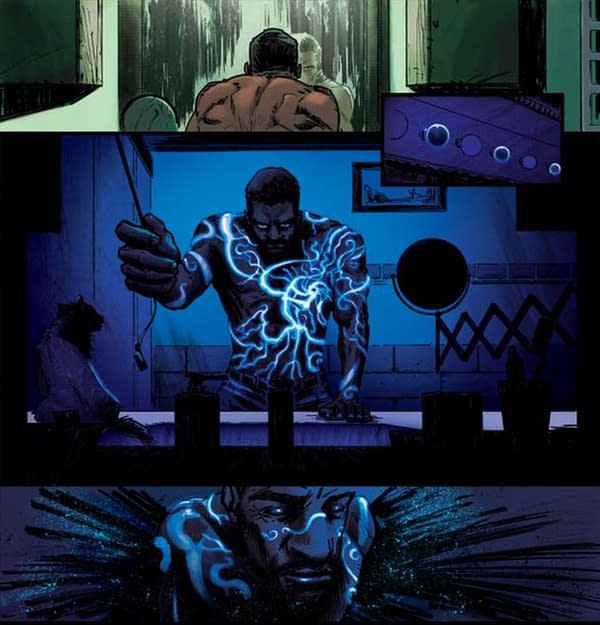
Special thanks to Okwudili Udeh, John Jennings, and Jude Terror
CREDITS FOR THE BOOK:
The Gentleman: Darkness of the Void #1
Writer: Greg Anderson Elysée
Art: Massimiliano Veltri
Colors: Marco Pagnotta
Editor and Creator: Marcel Dupree
Get The Gentleman: Darkness of the Void on Kickstarter.





